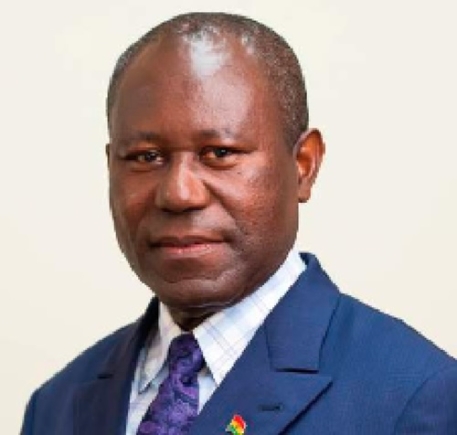
GH¢32.5bn COCOBOD debt shielded cocoa sector from collapse — Boahen Aidoo
A former Chief Executive Officer of the Ghana Cocoa Board (COCOBOD), Joseph Boahen Aidoo, has justified the GH¢32.5 billion debt incurred during his tenure, arguing it was a strategic measure that prevented Ghana’s cocoa sector from collapsing.
In an interview, Mr Aidoo described the debt as a necessary response to inherited financial challenges and external market shocks.
He said the debt, along with that accrued under the previous National Democratic Congress (NDC) administration, was not a mark of mismanagement but a bold effort to safeguard the country’s cocoa industry.
“We chose to act. We chose to protect the farmers, the supply chain and the country’s economic future—even when it meant walking into the storm,” Mr Aidoo said.
Syndicated Loan Crisis
Upon taking office in 2017, Mr Aidoo said COCOBOD had no funds to begin the 2017–2018 cocoa season.
The previous administration, he revealed, had already fully utilised a US$1.8 billion syndicated loan facility, including a final US$300 million drawdown in mid-December 2016.
By December 31, 2016, he said, the loan was exhausted, leaving the incoming administration to find new resources to sustain operations for the remaining months of the 2016–2017 crop year.
The COCOBOD also inherited underwhelming cocoa deliveries—just 611,763 metric tonnes—well below the 900,000-tonne target.
“There were no funds to purchase cocoa or pay farmers. We faced urgent financial obligations amid a 30 per cent drop in world cocoa prices.
We had to act swiftly or risk losing total control of the industry,” he said.
Debt as a Lifeline
In response, Mr Aidoo’s administration turned to high-interest, short-term cocoa bills.
These raised over GH¢2.2 billion, which was used to purchase more than 355,000 tonnes of cocoa, settle outstanding debts for fertilisers and chemicals, and support Licensed Buying Companies (LBCs).
He dismissed criticisms of reckless borrowing.
“It’s disingenuous to suggest our debt was reckless.
It was an investment in continuity.
Without it, Ghana’s cocoa sector would have come to a standstill,” he said.
He also stressed COCOBOD’s financial capacity, noting that the organisation generated more than $2 billion in annual receipts.
As of February 2025, cocoa purchases had exceeded 560,000 tonnes, valued at about GH¢45 billion based on Free On Board (FOB) pricing.
Reform
Mr Aidoo highlighted one of the major reforms during his tenure—the decision to forgo syndicated loans for the 2024/25 cocoa season. The shift ended Ghana’s 32-year dependence on external borrowing for cocoa financing.
Despite speculation that Ghana had been disqualified from syndicated lending, he clarified that financial institutions had offered favourable terms. COCOBOD, however, opted for an independent financing model.
“For the first time in decades, we walked away from the dependency model and took control of our financing.
That’s not weakness—that’s sovereignty,” he said.
Under the new model, LBCs procure cocoa, which is sold by the Cocoa Marketing Company (CMC) through forward contracts.
Proceeds are paid in US dollars through Ghana International Bank, converted into cedis via the Bank of Ghana, and then remitted to COCOBOD.
The approach has reportedly saved Ghana $150 million in interest and related fees.
